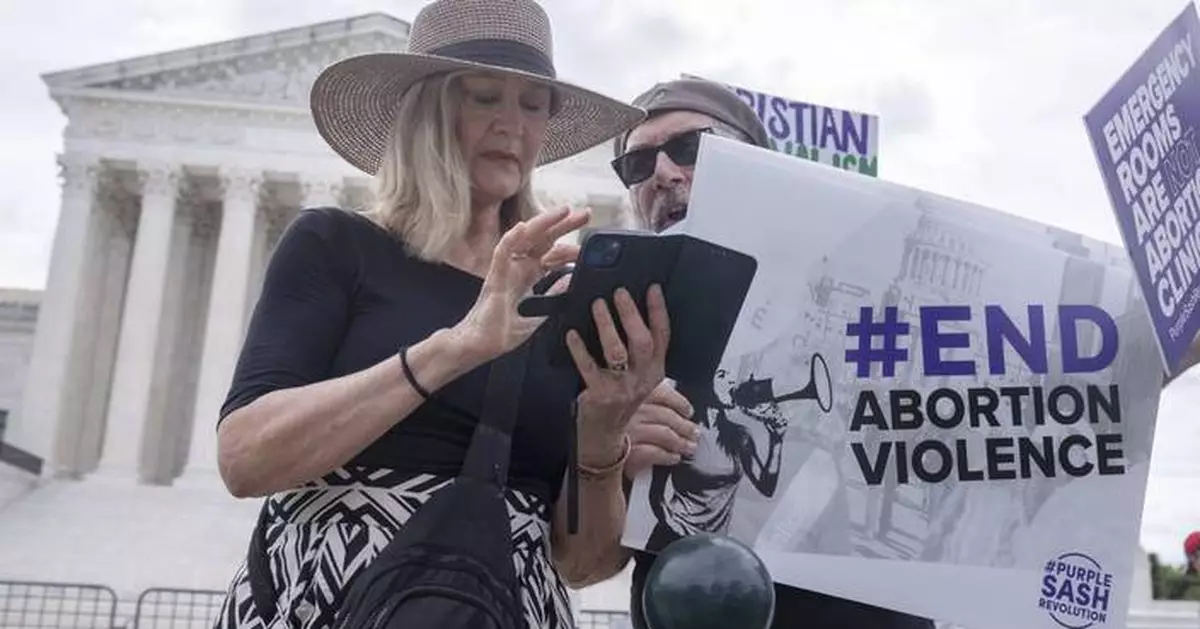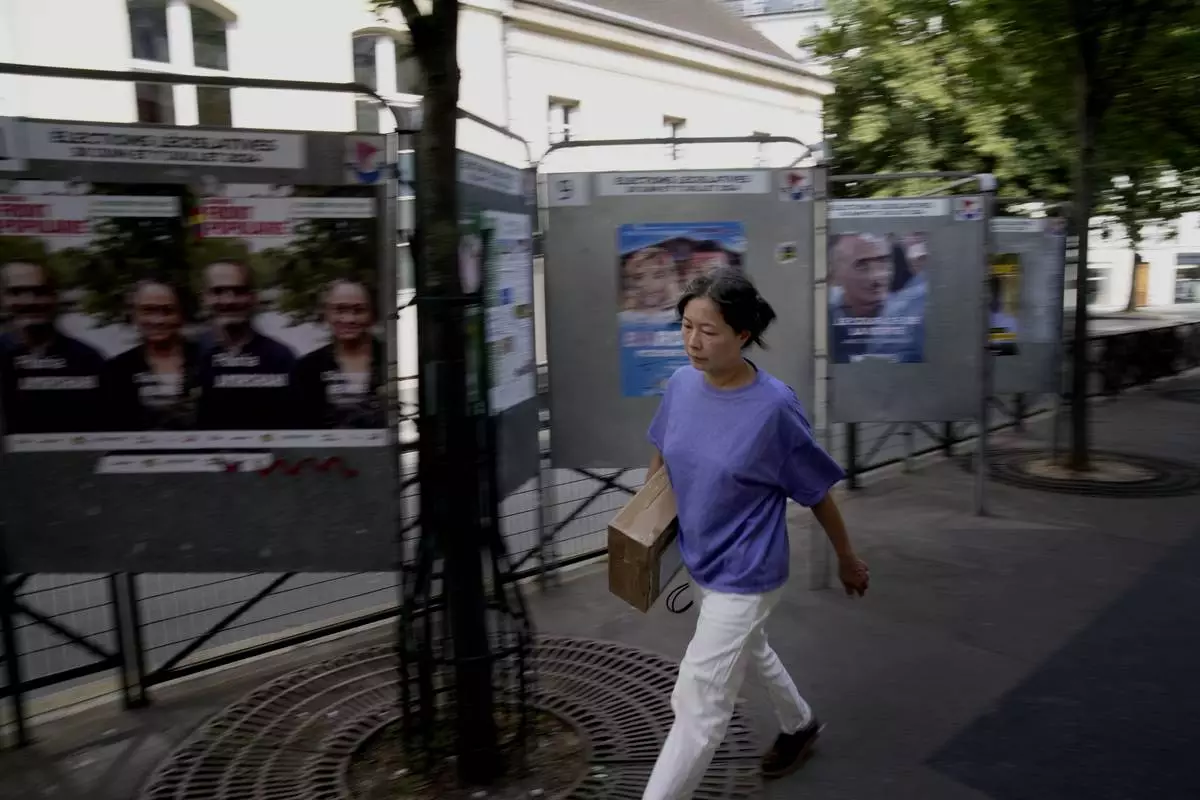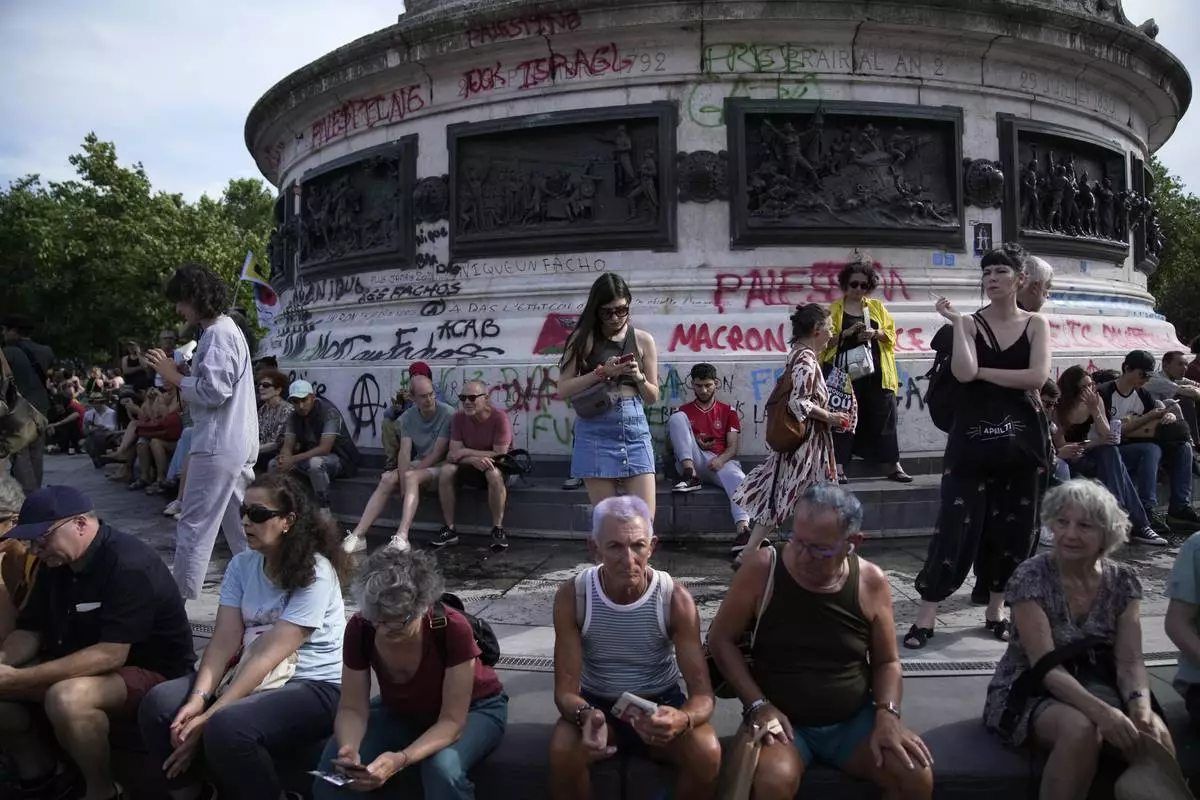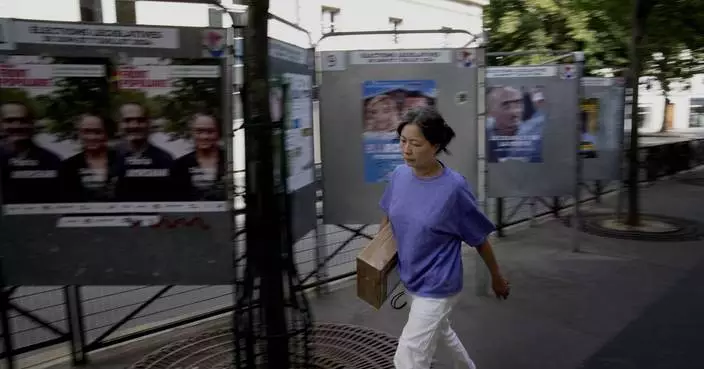WASHINGTON (AP) — The U.S. Supreme Court did not settle the debate over whether federal law requires hospitals to stabilize pregnant patients with emergency abortions on Wednesday, despite saying Idaho hospitals can provide abortions in medical emergencies even with the state’s restrictions.
The court delivered a 6-3 procedural ruling that left key questions still lingering about whether states can ban doctors from providing emergency abortions that save a woman from serious infection or organ loss.
Health and legal experts say Thursday’s order that divided the Supreme Court’s conservatives does nothing to protect pregnant women in other states with strict abortion bans, where state bans might conflict with a federal law that the Biden administration argues requires emergency abortions.
“The decision the Supreme Court released this morning doesn’t shed any light on how that conflict will or should be resolved,” said Joanne Rosen, the co-director of the Johns Hopkins Center for Law and the Public’s Health.
Here is a look at emergency abortions in the U.S., the federal law that the Biden administration says requires hospitals to provide them, and why the debate on the legality of those abortions is far from resolved.
Every year, about 50,000 women in the U.S. develop life-threatening complications during pregnancy, including sepsis, hemorrhaging or the loss of reproductive organs.
In rare cases with some of those complications, doctors might terminate the pregnancy, especially when there is no chance for a fetus to survive. For example, if a woman’s water breaks during the second trimester, a condition known as preterm premature rupture of membranes, the fetus may not be viable and continuing the pregnancy means that the patient may risk developing sepsis, an infection that can be deadly.
Sepsis and blood loss are some of the most common causes of maternal deaths in the U.S. Last year, nearly 700 women died while pregnant, giving birth or immediately following childbirth, according to the Centers for Disease Control and Prevention.
Idaho doctors say at least a half-dozen pregnant women have been airlifted to get emergency treatment in other states since January when the strict abortion ban, which allows doctors to perform abortion if a woman’s life but not her health is at risk, took effect.
The law, called t he Emergency Medical Treatment and Active Labor Act or “EMTALA,” requires emergency rooms to offer a medical exam if you turn up at their facility. The law applies to nearly all emergency rooms — any that accept Medicare funding.
Those emergency rooms are required to stabilize patients if they do have a medical emergency before discharging or transferring them to another hospital. And if the ER doesn’t have the resources or staff to properly treat that patient, staff members are required to arrange a medical transfer to another hospital, after they’ve confirmed the facility can accept the patient.
Hospitals that violate the federal law risk their Medicare funding and can face steep fines from the federal government.
Since the Supreme Court overturned the constitutional right to an abortion, Democratic President Joe Biden's administration has told hospitals that abortion is considered stabilizing care that EMTALA requires.
The Biden administration sued Idaho over its strict abortion ban, which only allowed exceptions to save a woman’s life, arguing that the law prevented ER doctors from offering an abortion if a woman needed one in a medical emergency.
Attorneys for Idaho argued there’s no conflict between the state and federal law since Idaho allows doctors to perform an abortion if the woman’s life is at risk.
On Thursday, the justices reinstated a lower court order that had allowed hospitals in Idaho to perform emergency abortions to protect a pregnant patient’s health, saying that the U.S. Supreme Court got involved in the case too quickly.
Very little – for now. The U.S. solicitor general has said several other states have abortion bans that are so strict, they might be in conflict with the federal law. But the Supreme Court didn't directly address possible conflicts between the laws in its ruling.
Texas, for example, is suing the federal government over its guidance that says hospitals must provide abortions for women who need one in medical emergencies.
The 5th Circuit Court of Appeals ruled against the administration in January, finding that EMTALA does not require Texas hospitals to provide abortions in emergency rooms. The Justice Department has appealed that decision.
“The availability of abortions in emergency medical cases in Texas will continue to be extraordinarily limited,” Rosen of Johns Hopkins said.
Doctors in states like Florida and Missouri have said they are afraid to treat patients with an abortion since the bans were enacted. The federal government has also found hospitals in those states have violated EMTALA in some cases where pregnant patients were turned away or not properly treated.
On Thursday, in a concurring opinion that also expressed dissent, Justice Ketanji Brown Jackson argued the court should have settled the debate for doctors and patients alike.
“For as long as we refuse to declare what the law requires, pregnant patients in Idaho, Texas, and elsewhere will be paying the price," Jackson said.
Yes. With the Idaho case being sent back to the lower court and the Texas case under appeal, it’s an issue that could land back at the Supreme Court soon.
And six judges have now tipped their hand.
The court’s three liberal judges – Jackson, Elena Kagan, and Sonia Sotomayor – said in their decision that the federal law says women should be able to get abortions in medical emergencies, despite state bans. Three conservative justices – Samuel Alito, Neil Gorsuch and Clarence Thomas – disagreed that the federal law is that specific, and pointed out that it was written in a way that requires hospitals to treat the “unborn child.”
That leaves Justices Amy Coney Barrett, Brett Kavanaugh and John Roberts in play.
“They don’t want to have to make a decision now,” said Rob Gatter, a law professor at St. Louis University, who is an expert on health policy. “That’s a recipe for saying, somebody else deal with this first, you get it wrong first, you give it a first try, let me see how this goes.”
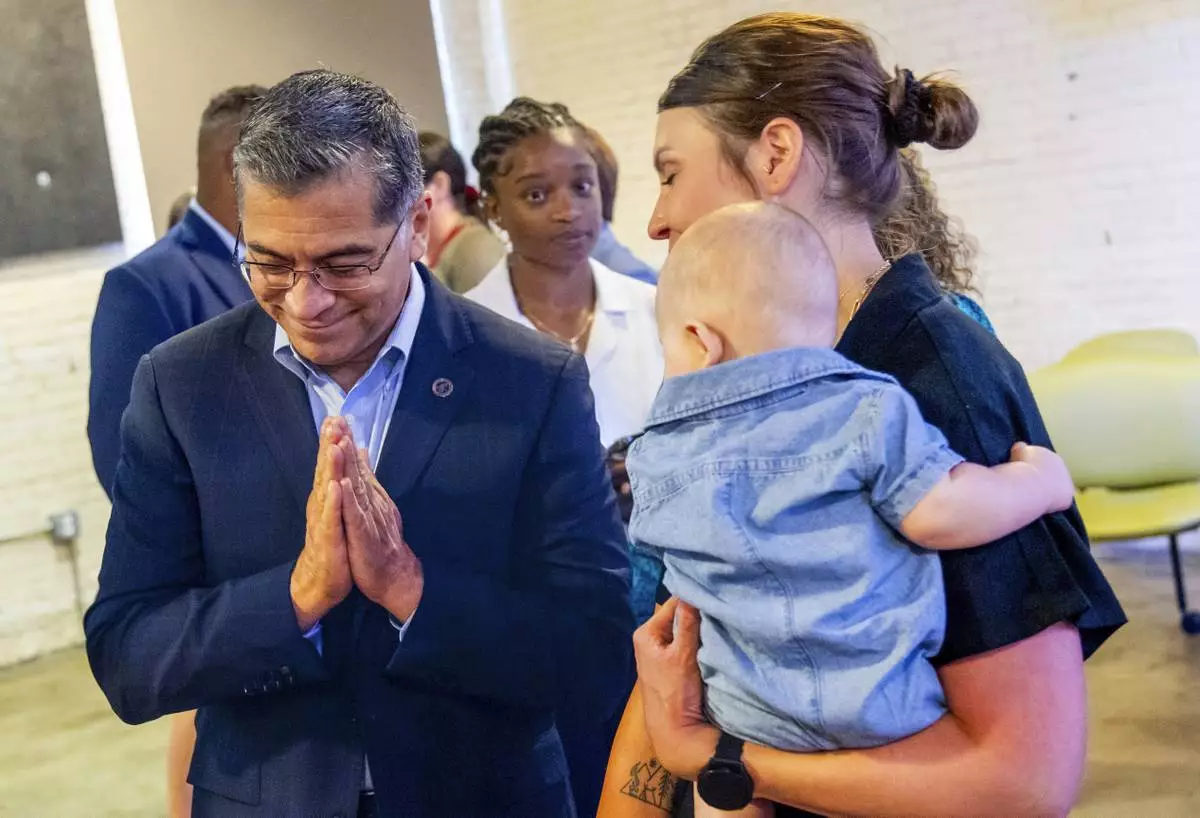
U.S. Health Secretary Xavier Becerra, left, thanks Jillaine St. Michel, holding 5-month-old Tucker, for participating after a conversation with local patients and providers who have been impacted by Idaho's abortion restrictions held at the Linen Building in Boise, Idaho, Wednesday, June 26, 2024. (AP Photo/Kyle Green)
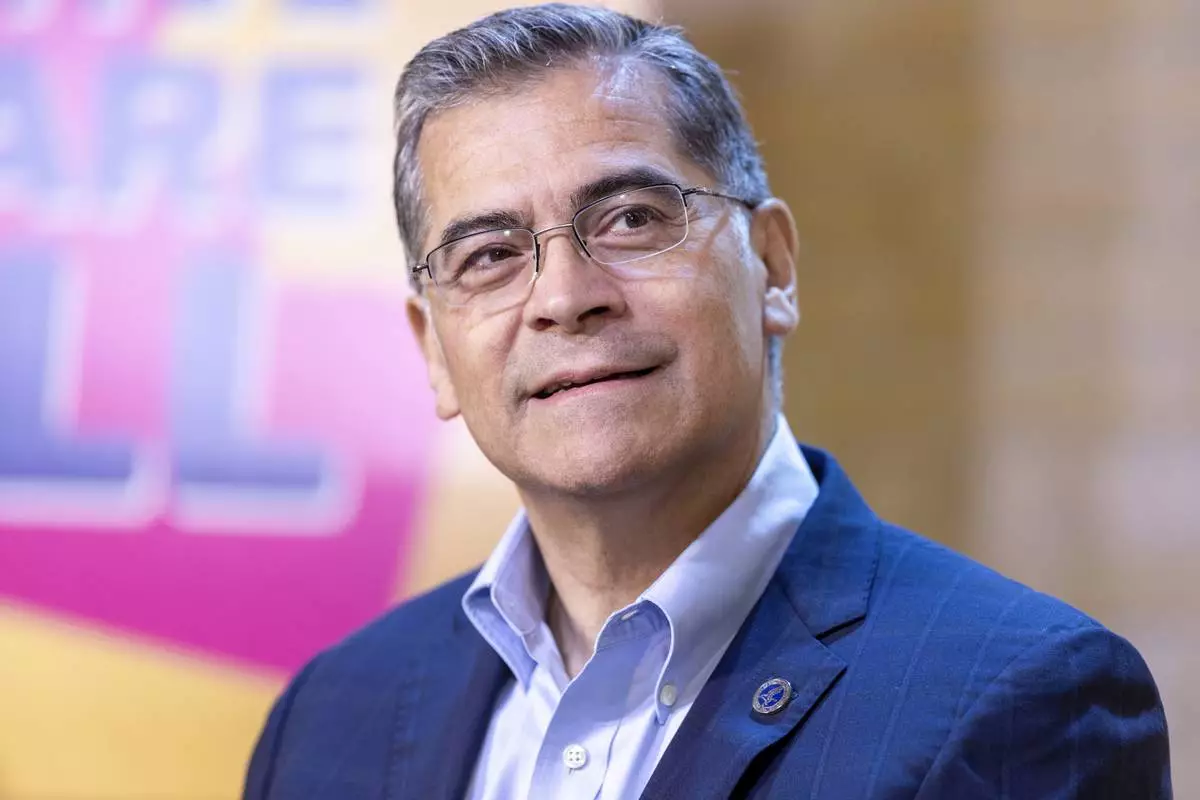
U.S. Health Secretary Xavier Becerra speaks to participants during a conversation with local patients and providers who have been impacted by Idaho's abortion restrictions held at the Linen Building in Boise, Idaho, Wednesday, June 26, 2024. (AP Photo/Kyle Green)
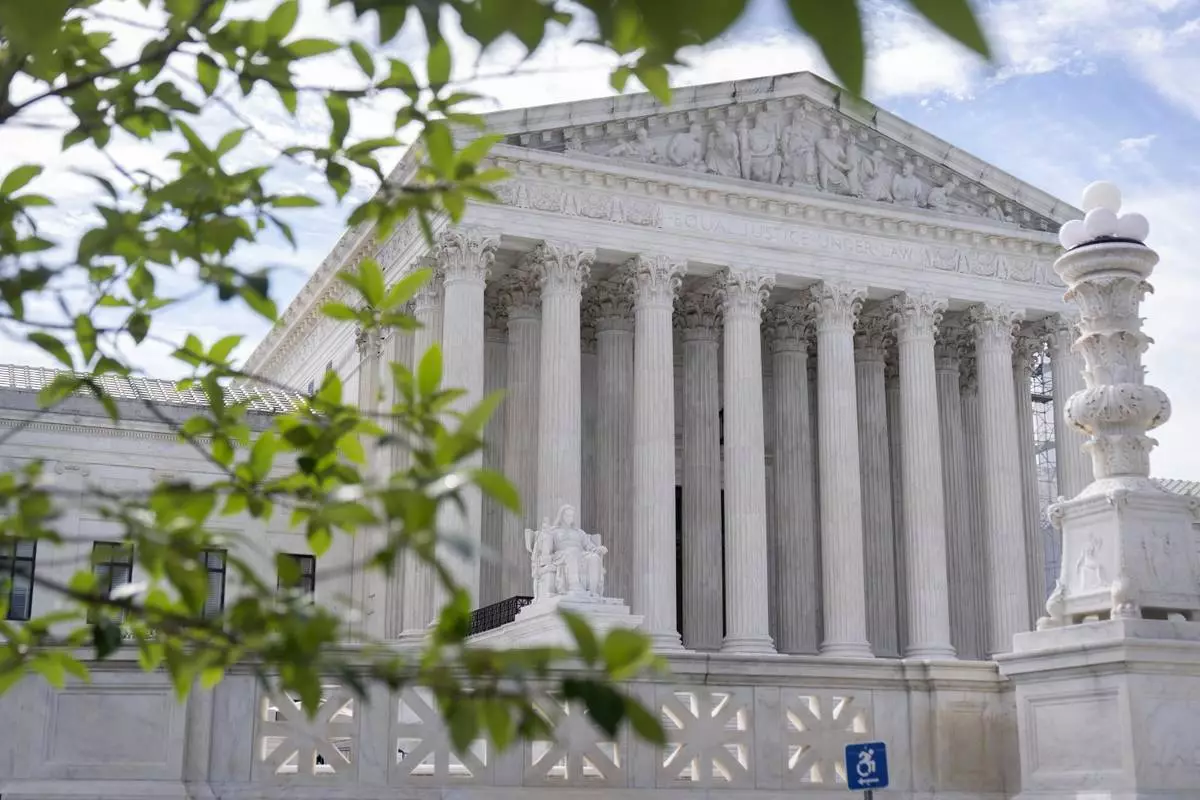
The Supreme Court building is seen on Thursday, June 27, 2024, in Washington. (AP Photo/Mark Schiefelbein)
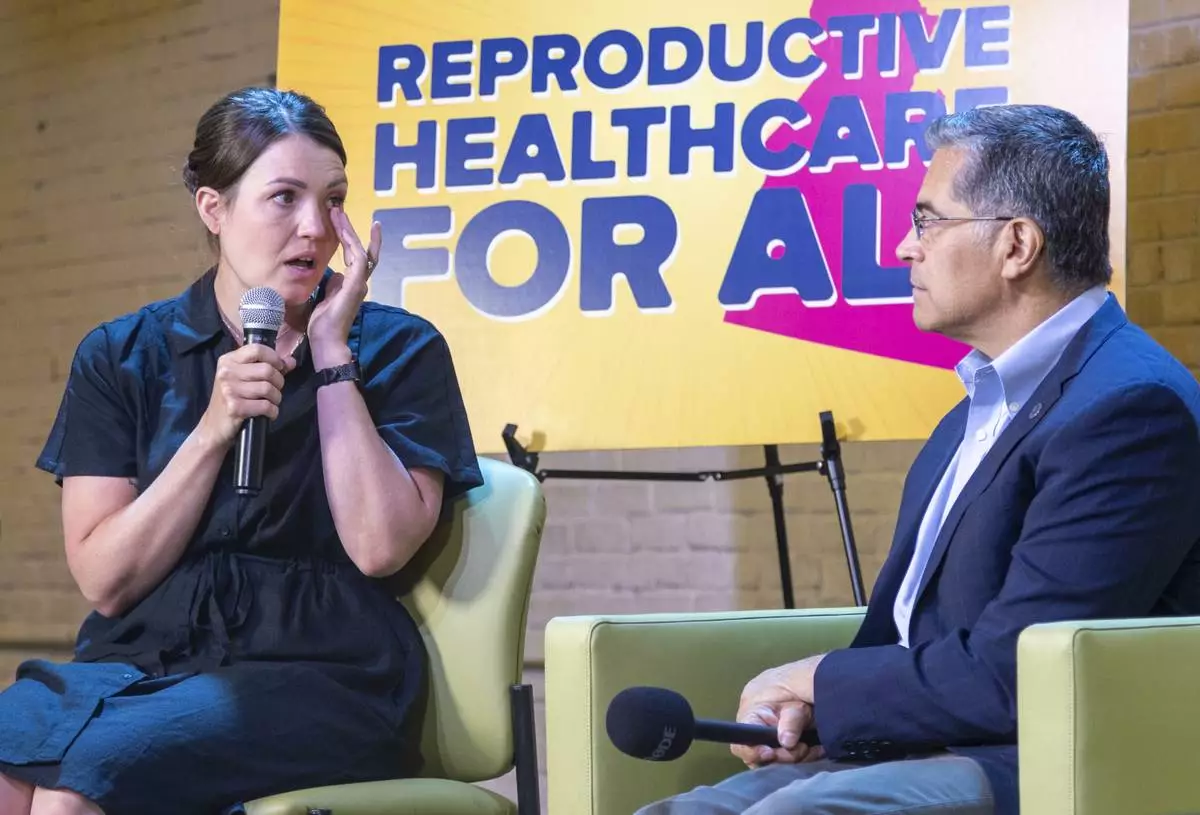
U.S. Health Secretary Xavier Becerra, right, listens as Jillaine St. Michel, a patient who was forced to travel to Seattle to access an abortion speaks during a conversation with local patients and providers who have been impacted by Idaho's abortion restrictions held at the Linen Building in Boise, Idaho, Wednesday, June 26, 2024. (AP Photo/Kyle Green)
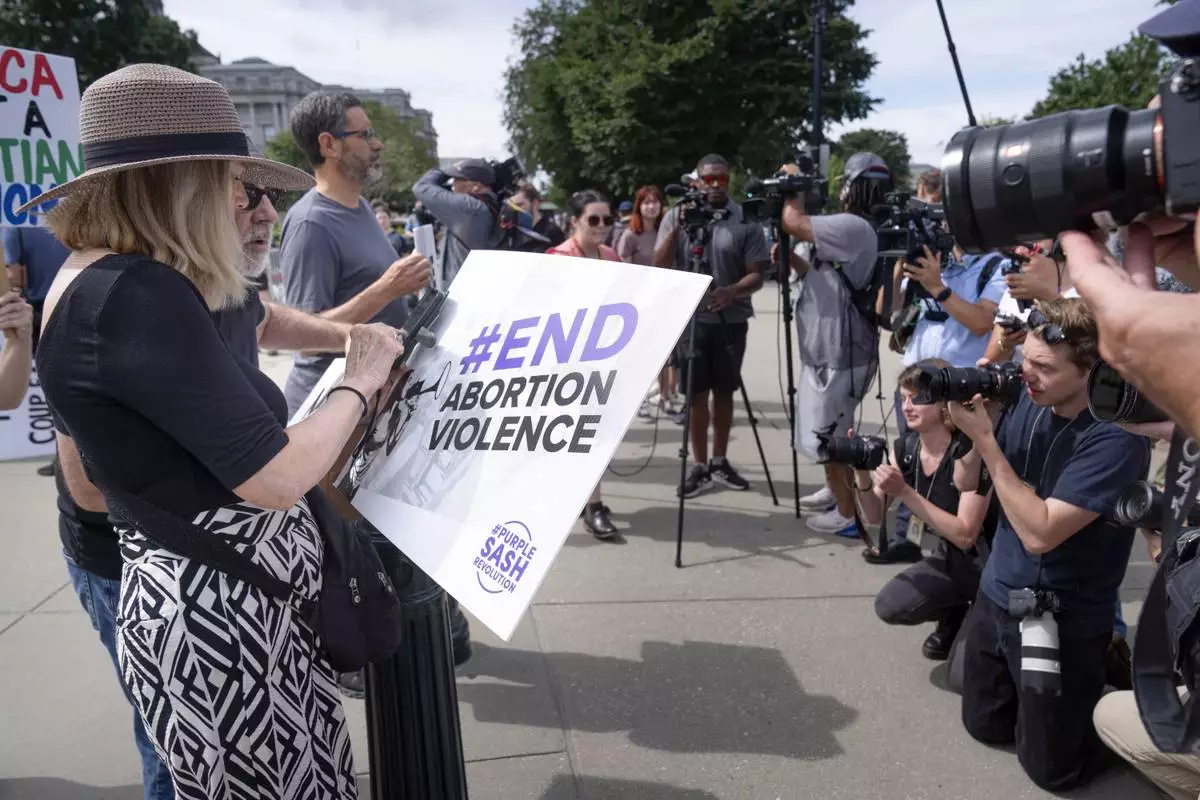
Katie Mahoney, left, and Rev. Patrick Mahoney, chief strategy officer for Stanton Healthcare, an Idaho-based pregnancy center that does not provide abortions, read the text of a Supreme Court decision outside the Supreme Court on Thursday, June 27, 2024, in Washington. The Supreme Court cleared the way Thursday for Idaho hospitals to provide emergency abortions for now in a procedural ruling that left key questions unanswered and could mean the issue ends up before the conservative-majority court again soon. (AP Photo/Mark Schiefelbein)
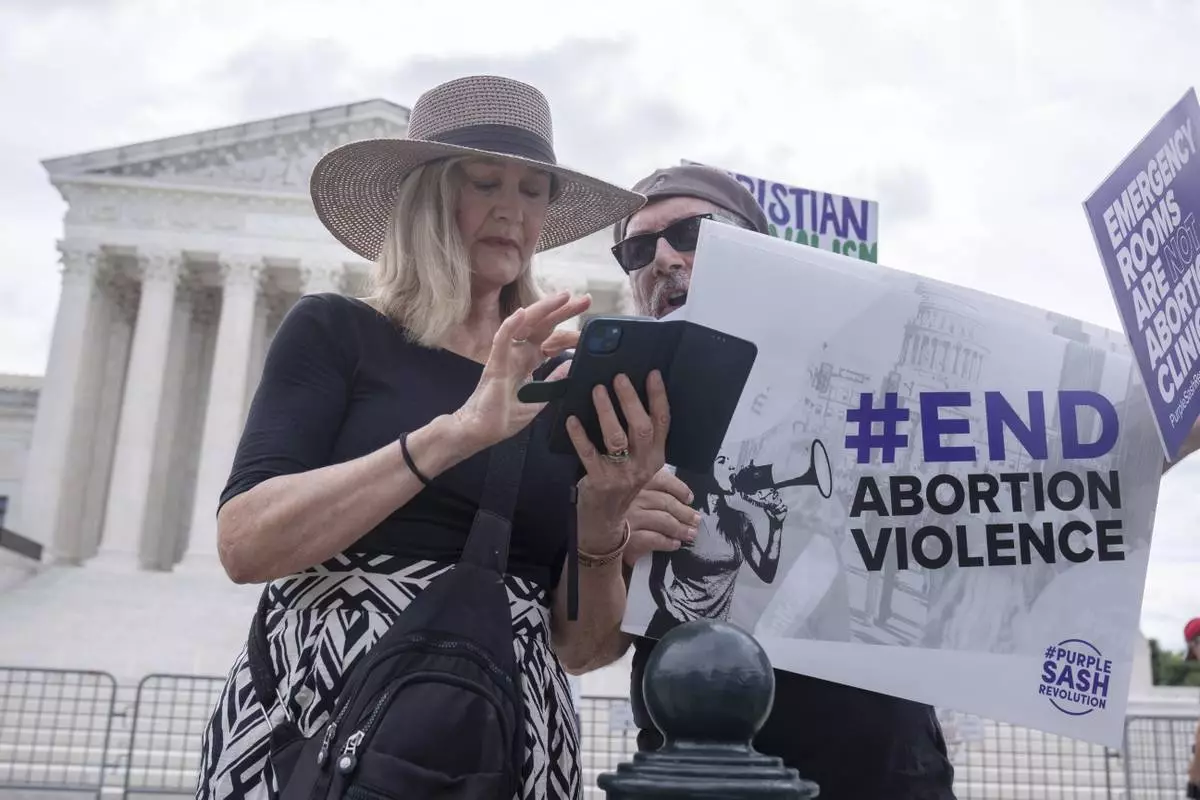
Katie Mahoney, left, and Rev. Patrick Mahoney, chief strategy officer for Stanton Healthcare, an Idaho-based pregnancy center that does not provide abortions, read the text of a Supreme Court decision outside the Supreme Court on Thursday, June 27, 2024, in Washington. The Supreme Court cleared the way Thursday for Idaho hospitals to provide emergency abortions for now in a procedural ruling that left key questions unanswered and could mean the issue ends up before the conservative-majority court again soon. (AP Photo/Mark Schiefelbein)


